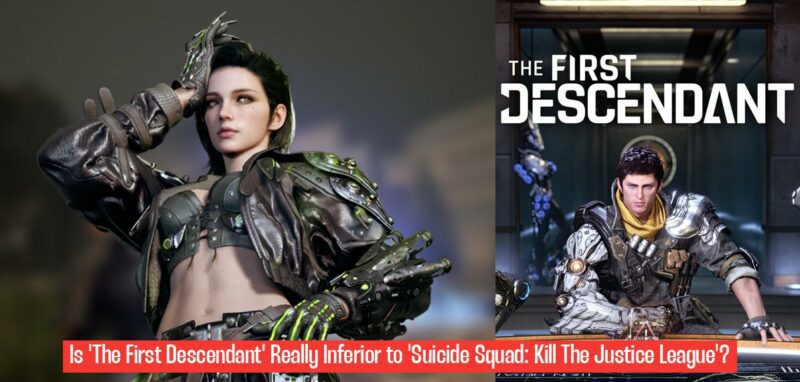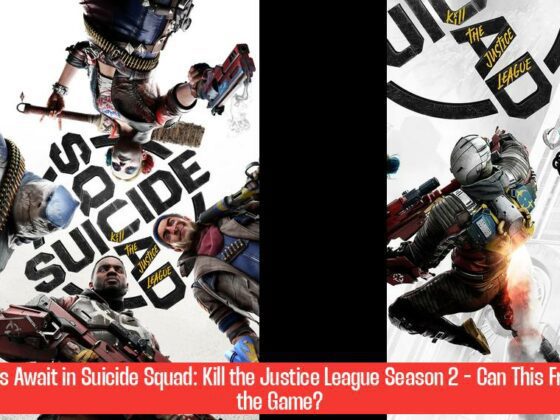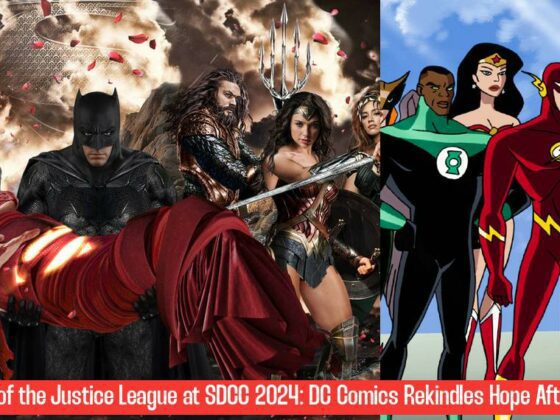The First Descendant: Is it Really Worse Than Suicide Squad?
The gaming world is buzzing with excitement (and some confusion) over the release of The First Descendant, a new free-to-play looter shooter that’s quickly gaining traction. But amidst the hype, a curious trend has emerged – the game is facing criticism and receiving lower review scores than the infamous Suicide Squad: Kill the Justice League, a title that was widely considered a major disappointment. This begs the question: is The First Descendant truly worse than Suicide Squad, or is there something more to the story?
Let’s dive into the details. The First Descendant, despite its free-to-play nature, has garnered a surprising number of players, reaching peak concurrent players on Steam that dwarf the launch numbers of Suicide Squad. It’s still drawing in a considerable crowd, with 170,000 to 200,000 players logging in every night. This is a stark contrast to Suicide Squad, which experienced a rapid decline in player numbers, despite ongoing live content releases. But how does this translate to the critical reception?
The review scores tell a different story. The First Descendant currently holds a lower aggregate score on review platforms like Metacritic, with scores hovering around the 50s, compared to Suicide Squad’s 60, which was considered one of the worst-scoring AAA releases of the year. So, are the critics justified in their assessment? Is The First Descendant truly a subpar game?
While The First Descendant certainly has its share of shortcomings, it’s not necessarily a bad game. The game’s repetitive gameplay loop and somewhat nonsensical story might not resonate with everyone, but it offers a unique blend of looter shooter mechanics that can be undeniably fun, especially for players who enjoy grinding for power upgrades and new characters. The game’s potential for significant power gains, akin to the experience of Diablo, is a major draw for some players, providing a sense of accomplishment as they unlock new abilities and gear.
The Power of Free-to-Play and the Disconnect Between Reviews and Player Base
The stark contrast between The First Descendant’s player numbers and its review scores highlights a growing trend in the gaming industry: the disconnect between critical reception and player engagement. The free-to-play model, while often associated with predatory monetization practices, has also become a powerful tool for attracting a large audience. The First Descendant, with its free access and the promise of endless grinding, has managed to tap into a segment of the gaming community that enjoys the thrill of unlocking and collecting new loot, even if the overall experience is considered repetitive or lacking in narrative depth.
This trend is not new. Destiny 2, another popular looter shooter, has a loyal player base despite receiving mixed reviews from critics. The game’s constant updates and expansions, coupled with the addictive nature of its loot system, have kept players engaged for years. It is evident that free-to-play games, while often criticized for their monetization practices, can be successful in attracting a large audience, even when they don’t receive widespread critical acclaim.
In the case of The First Descendant, the game’s free-to-play nature has undoubtedly contributed to its popularity. The lack of financial barrier allows players to try the game without any risk, and those who enjoy the core gameplay loop are likely to stick around for the long haul. The game’s generous loot system and the potential for significant power gains provide a sense of progression that keeps players engaged, even if the narrative and story are not particularly compelling.
Why The First Descendant Might Not Be For Everyone
However, it’s important to acknowledge that The First Descendant is not for everyone. The game’s repetitive nature and reliance on grinding for rewards may not be appealing to all players. The story is also criticized for being weak and lacking in substance, which can be a major turn-off for those seeking a compelling narrative experience. The game’s microtransactions, although not mandatory, can further contribute to a sense of frustration for players who feel pressured to spend money to unlock the best gear and characters.
Read : Analysis of Blue Beetle (English) Box Office Performance
The game’s focus on waifus (female characters with exaggerated sexualized features) as a selling point has also been met with criticism, adding to the perception that the game lacks depth and relies on superficial appeal to attract players. This, combined with the repetitive gameplay loop and the lack of a compelling narrative, has led some to conclude that The First Descendant is simply not a well-rounded game, despite its potential for fun and its success in capturing the attention of a dedicated player base.
Ultimately, whether or not The First Descendant is a “good” game is subjective. The game caters to a specific niche of players who enjoy the thrill of grinding for power upgrades and unlocking new loot. For those who prefer a more compelling story, a less repetitive gameplay experience, or a game that doesn’t rely on sexualized imagery, The First Descendant may not be the right choice. However, for those who are willing to overlook these shortcomings, the game offers a unique blend of looter shooter mechanics that can be undeniably fun and engaging.
The First Descendant vs. Suicide Squad: A Tale of Two Disappointments
It’s interesting to compare The First Descendant to Suicide Squad: Kill the Justice League, another free-to-play looter shooter that received harsh criticism from both critics and players. Both games share some similarities: a focus on repetitive gameplay, a lack of a compelling story, and the presence of microtransactions. However, there are also some key differences.
Suicide Squad, despite its high-profile release and its association with the acclaimed Rocksteady Studios, failed to deliver on its promise. The game’s clunky controls, repetitive gameplay, and disappointing story were met with widespread criticism. Despite its live content releases, Suicide Squad struggled to retain players, and the game’s player numbers have dwindled significantly since its launch.
The First Descendant, on the other hand, has managed to attract a large player base, despite its lower review scores. The game’s free-to-play model has undoubtedly contributed to its success, but the game’s core gameplay mechanics, which offer a rewarding loop of grinding and unlocking loot, have also played a major role. While The First Descendant might not be a critical darling, it has managed to find an audience, which is more than what can be said for Suicide Squad.
The Verdict: It’s Not a Complete Disaster, But It’s Not a Masterpiece Either
So, is The First Descendant truly worse than Suicide Squad? It’s difficult to say definitively, as both games have their own strengths and weaknesses. Suicide Squad, despite its critical failure, had a higher initial price point, making it a riskier investment for players. The First Descendant, on the other hand, is free to play, allowing players to try the game without any financial commitment. This difference in accessibility has played a significant role in the contrasting reception of these two games.
Ultimately, both The First Descendant and Suicide Squad represent the challenges and complexities of the modern gaming industry. The rise of free-to-play games has led to a shift in player expectations, with many players now prioritizing accessibility and gameplay loops over compelling narratives and polished game design. This trend has created a disconnect between critical reception and player engagement, with some games achieving immense popularity despite receiving negative reviews.
The First Descendant, while far from a perfect game, has managed to carve a niche for itself within the gaming landscape. Its free-to-play model and its focus on rewarding gameplay loops have attracted a dedicated player base, despite the game’s shortcomings. Whether or not The First Descendant will be able to maintain its popularity in the long run remains to be seen, but the game’s success in attracting a large player base is a testament to the power of free-to-play and the evolving landscape of the gaming industry.
Is The First Descendant truly worse than Suicide Squad: Kill the Justice League?
Despite lower review scores, The First Descendant’s player engagement and unique gameplay mechanics suggest it may not be objectively worse than Suicide Squad.
How do the player numbers of The First Descendant compare to Suicide Squad: Kill the Justice League?
The First Descendant has seen a significant player base, with peak concurrent players on Steam surpassing Suicide Squad’s launch numbers, and 170,000 to 200,000 players logging in every night.
What are some criticisms of The First Descendant?
The First Descendant has been criticized for its repetitive gameplay loop and somewhat nonsensical story, which may not appeal to all players.
What trend in the gaming industry does the contrast between The First Descendant’s player numbers and review scores highlight?
The disconnect between critical reception and player engagement, as seen with The First Descendant, showcases the growing trend in the gaming industry.



